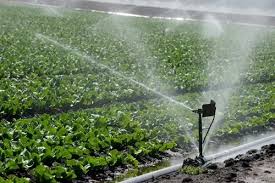GULU, January, 242025 – Several farmers in Gulu district have appealed to the government to reduce the cost of equipment sold under the Micro Scale Irrigation Programme, a government initiative aimed at improving food security by decreasing reliance on rain-fed agriculture. The over-dependence on rain-fed farming has traditionally left crop farmers in Gulu idle during the dry season, which lasts from December to March.
Through programme’s cost-sharing arrangement, the government helps farmers cover the cost of irrigation equipment. However, the contribution farmers are required to make depends on several factors, including proximity to a water source, land terrain, soil suitability, and the area to be irrigated.
Under the arrangement, government covers between 25 percent and 75 percent of the total cost, with a maximum contribution of Shs 7.2 million per acre. This means that farmers are left to pay between Shs 2 million and Shs 8 million per acre, depending on the specifics of their farm and the irrigation system they choose, although government has capped the size of the farm at 2.5 acres.
Despite this arrangement, most farmers in Gulu district argue that the cost remains too high.
Samuel Arop, a vegetable farmer in Owalo Subcounty, explains that the 25 percent co-funding requirement has made it difficult for him to afford the equipment. “During the dry season, I use jerrycans to collect water from the stream to irrigate my vegetables. It’s a tedious process, but it’s the only method I can afford for now,” Arop says.
Arop adds that a solar pump would significantly improve the profitability of his vegetable enterprise, but the cost remains out of reach. He urges the government to consider lowering the price to make the equipment more accessible to farmers in the district.

Cecilia Akello, a vegetable farmer in Puwinyi village, Owoo Subcounty, suggests that the government should allow farmers to acquire the equipment through an installment payment plan, given the high upfront costs. “If the government could provide the equipment on an installment basis, we would be able to repay the money from the proceeds of our crops, which yield a higher return on investment when irrigated,” Akello says.
Alfred Komakech, the Gulu Agricultural Officer responsible for the Micro Scale Irrigation Programme, however, states that the district is adhering to government guidelines. “For now, we cannot make any changes as we have to follow the government’s guidelines in implementing this project,” he says. “While many farmers are interested, they are financially constrained.”
Komakech further explains that while many farmers have access to good water sources near their farms, the co-funding requirements remain a barrier. “Any payment over a million shillings is simply too much for most of our farmers,” he adds.
To date, over 480 farmers in Gulu district have expressed interest in acquiring irrigation equipment. However, only nine farmers have successfully installed the equipment on their farms since the start of the 2023/2024 financial year.
The district’s agricultural department is in the process of finalising the installation of irrigation equipment on eight more farms, with 10 additional farmers expected to complete payment and have their equipment installed, according to Komakech.
He notes that, in the 2023/2024 financial year, the district had aimed to install 16 micro-scale irrigation systems on individual farms, but managed to install only two.
Currently, Gulu District has Shs 493.6 million allocated for the micro-scale irrigation project, with 75% of this funding coming from the government. Farmers are expected to contribute Shs 123.4 million as their 25% share of the total cost.
“The minimum cost a farmer incurs to acquire irrigation equipment under the micro-scale project is currently Shs 2 million. However, the demand for this equipment is greater than the available funding,” Komakech says.
The Micro Scale Irrigation Programme is part of the Intergovernmental Fiscal Transfer Reform Programme [IFTRP] and is supported by the World Bank through the Uganda Intergovernmental Fiscal Transfer Programme [UgIFT]. It is in line with Uganda’s National Irrigation Policy, which aims to create 1.5 million hectares of irrigated land by 2040.
The programme is set to conclude in June 2025 and is led by the Department of Agricultural Infrastructure Mechanisation and Water for Agricultural Production within the Ministry of Agriculture, Animal Industry, and Fisheries [MAAIF].
Buy your copy of thecooperator magazine from one of our country-wide vending points or an e-copy on emag.thecooperator.news
